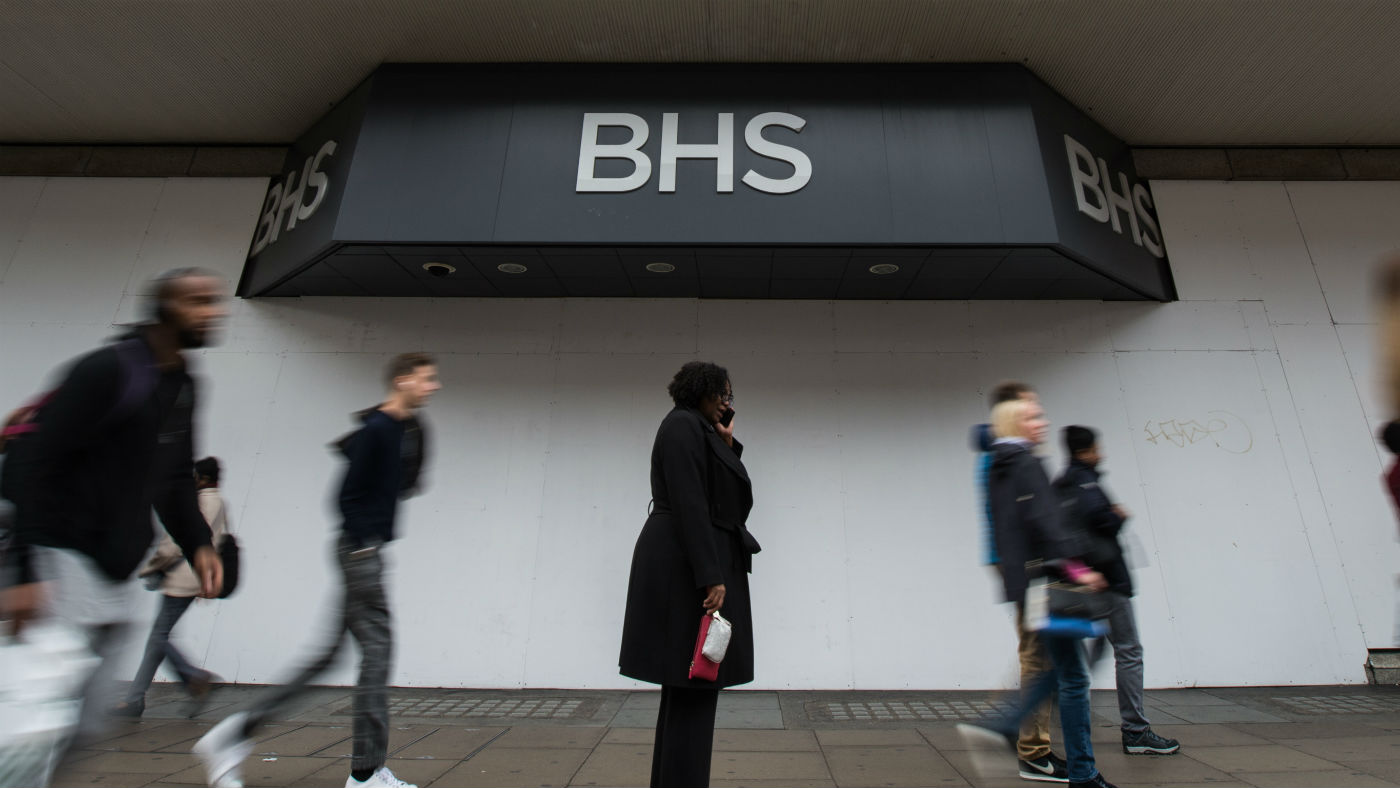Employers to face jail for pension pot mismanagement
Beefed up response follows a series of high-profile corporate failures

A free daily email with the biggest news stories of the day – and the best features from TheWeek.com
You are now subscribed
Your newsletter sign-up was successful
Employers who mismanage workers’ pension pots could face up to seven years in jail or unlimited fines, as part of a beefed-up response by the government to a series of high profile corporate failures.
Announcing the changes in the Sunday Telegraph, the Work and Pensions Secretary Amber Rudd said “for too long, the reckless few playing fast and loose with people’s futures have got away scot-free.”
“If you run your company pension into the ground, saddling it with massive, unsustainable debts, we're coming for you,” she said.
The Week
Escape your echo chamber. Get the facts behind the news, plus analysis from multiple perspectives.

Sign up for The Week's Free Newsletters
From our morning news briefing to a weekly Good News Newsletter, get the best of The Week delivered directly to your inbox.
From our morning news briefing to a weekly Good News Newsletter, get the best of The Week delivered directly to your inbox.
Reuters says “Britain has been promising to introduce tougher laws governing the management of pensions for more than a year following the collapse of firms like outsourcer Carillion and department store chain BHS”.
The high-street retailer fell into administration in 2016, leaving a £571 million pension deficit. Sir Philip Green, who sold the company for £1 a year before it went bust, eventually agreed to pay £363 million towards the pot to end legal actions against him by the Pensions Regulator.
But while tougher sentencing has been broadly welcomed, not everyone thinks it is the best way to safeguard workers’ pensions.
Former Lib Dem pensions minister Sir Steve Webb says it could be difficult and time consuming to reach the higher burden of proof needed in criminal cases to show bosses deliberately underfunded a pension scheme and that civil, not criminal, action may be better.
A free daily email with the biggest news stories of the day – and the best features from TheWeek.com
He said that the criminal offence was “a good headline that risks achieving nothing or worse than nothing”.
Noting the initiative was first floated before the last general election in 2017, he told the BBC: “Two years on, we have not even had the primary legislation. We are years away from seeing this in force.”
-
 The environmental cost of GLP-1s
The environmental cost of GLP-1sThe explainer Producing the drugs is a dirty process
-
 Greenland’s capital becomes ground zero for the country’s diplomatic straits
Greenland’s capital becomes ground zero for the country’s diplomatic straitsIN THE SPOTLIGHT A flurry of new consular activity in Nuuk shows how important Greenland has become to Europeans’ anxiety about American imperialism
-
 ‘This is something that happens all too often’
‘This is something that happens all too often’Instant Opinion Opinion, comment and editorials of the day
-
 Labour shortages: the ‘most urgent problem’ facing the UK economy right now
Labour shortages: the ‘most urgent problem’ facing the UK economy right nowSpeed Read Britain is currently in the grip of an ‘employment crisis’
-
 Will the energy war hurt Europe more than Russia?
Will the energy war hurt Europe more than Russia?Speed Read European Commission proposes a total ban on Russian oil
-
 Will Elon Musk manage to take over Twitter?
Will Elon Musk manage to take over Twitter?Speed Read The world’s richest man has launched a hostile takeover bid worth $43bn
-
 Shoppers urged not to buy into dodgy Black Friday deals
Shoppers urged not to buy into dodgy Black Friday dealsSpeed Read Consumer watchdog says better prices can be had on most of the so-called bargain offers
-
 Ryanair: readying for departure from London
Ryanair: readying for departure from LondonSpeed Read Plans to delist Ryanair from the London Stock Exchange could spell ‘another blow’ to the ‘dwindling’ London market
-
 Out of fashion: Asos ‘curse’ has struck again
Out of fashion: Asos ‘curse’ has struck againSpeed Read Share price tumbles following the departure of CEO Nick Beighton
-
 Universal Music’s blockbuster listing: don’t stop me now…
Universal Music’s blockbuster listing: don’t stop me now…Speed Read Investors are betting heavily that the ‘boom in music streaming’, which has transformed Universal’s fortunes, ‘still has a long way to go’
-
 EasyJet/Wizz: battle for air supremacy
EasyJet/Wizz: battle for air supremacySpeed Read ‘Wizz’s cheeky takeover bid will have come as a blow to the corporate ego’